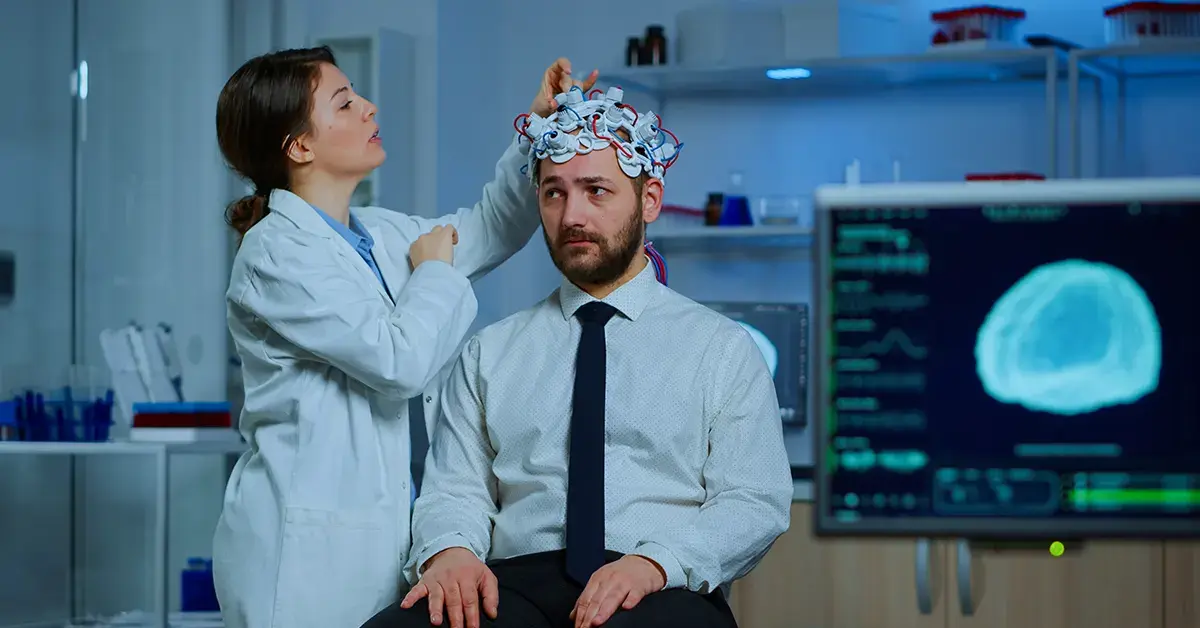Neurology is the branch of medicine that focuses on diagnosing and treating disorders related to the brain, spinal cord, and nerves. It is a crucial medical department because the nervous system controls everything in our bodies, from simple movements to complex thoughts and emotions. When something goes wrong with this system, it can affect a person’s ability to move, feel, or even think clearly.
What does Neurology cover?
Neurology addresses a wide range of issues that impact the nervous system. These conditions can be serious and life-altering. Common problems treated by neurologists include:
- Headaches and Migraines: Many people suffer from severe headaches or migraines that affect their daily lives. Neurologists can help identify the causes and recommend treatments to manage the pain.
- Epilepsy: This condition causes recurrent seizures. Patients can manage their symptoms with medicines or other treatments recommended by a neurologist.
- Strokes: A stroke happens when the blood flow to the brain is blocked. Neurologists play a key role in helping stroke victims recover and regain lost abilities.
- Multiple Sclerosis (MS): This condition affects the brain and spinal cord, leading to muscle weakness, balance problems, and fatigue. Neurologists work closely with MS patients to manage their symptoms and improve their quality of life.
- Parkinson’s Disease: It is a degenerative nervous system disorder that restricts movement. Patients may feel rigid, tremble, and have trouble walking. Neurologists provide ongoing care to slow the progression of the disease.
- Alzheimer’s Disease and Dementia: These diseases have an impact on behavior, thought, and memory. Neurologists work with elderly patients and their families to provide treatments that can slow the decline and maintain independence for as long as possible.
- Brain Injuries and Tumors: Neurology also deals with injuries to the brain, whether caused by accidents or growths like tumors. In these cases, neurologists work to minimize damage and promote recovery.
How Neurologists Diagnose Problems?
Neurology is a specialized field that requires advanced technology to properly diagnose and treat patients. Neurologists use a variety of tools and tests to understand what is happening inside the brain and nervous system. Some of the most common tests include:
- MRI (Magnetic Resonance Imaging): This test uses powerful magnets and radio waves to create detailed images of the brain and spine. It helps neurologists see any abnormalities, such as tumors, bleeding, or signs of diseases like multiple sclerosis.
- EEG (Electroencephalogram): An EEG is a brain-based tool that detects electrical activity, commonly used to diagnose conditions like epilepsy and other brain-related issues.
- Nerve Conduction Studies: These tests measure how well electrical signals move through the nerves. It helps identify problems with nerve damage or diseases like carpal tunnel syndrome.
- Spinal Tap (Lumbar Puncture): Neurologists sometimes need to examine the fluid around the brain and spinal cord. A spinal tap involves taking a small sample of this fluid to check for signs of infection, bleeding, or diseases like multiple sclerosis.
Treatments Neurologists Provide
Once a diagnosis is made, neurologists offer a range of treatments to help patients manage their conditions. Treatment plans are often personalized based on the specific needs of the patient. Some common treatments include:
- Medications: Many neurological conditions are treatable with medications. For example, patients with epilepsy may take anti-seizure drugs, while those with Parkinson’s disease might take medication to improve their movement.
- Physical Therapy: For patients who have lost strength or movement due to a stroke or injury, physical therapy can be an important part of their recovery. Neurologists work with physical therapists to create a plan that helps patients regain mobility and independence.
- Surgery: In some cases, surgery may be needed to treat a neurological condition. This could involve removing a tumor, relieving pressure on the brain, or repairing damaged nerves.
- Lifestyle Changes: Neurologists also recommend lifestyle changes to help patients manage their symptoms. These can include exercising regularly, eating a healthy diet, and reducing stress.
Why is Neurology Important?
The nervous system is crucial for our movement, thought, and interaction. And if something goes wrong with this system, can significantly impact a person’s life. Neurology as a medical department, manages neurological challenges like Parkinson’s disease and stroke. Early diagnosis and treatment can improve patient outcomes, so seeking medical attention for symptoms like persistent headaches, seizures, memory loss, or movement changes is essential.
Neurology is a vital medical department that focuses on the health of the brain, spinal cord, and nerves. By diagnosing and treating conditions that affect the nervous system, neurologists help improve the quality of life for millions of people. With advancements in technology and medicine, neurologists are better equipped than ever to help their patients lead healthy, fulfilling lives.
